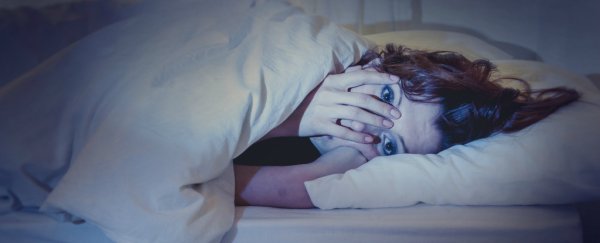With the hectic and often stressful pace of modern life, it's no wonder that there's been plenty of research into the health benefits of sleep and the amount of shut-eye we should ideally be getting. A new study from Johns Hopkins Medicine suggests that having our sleep interrupted is just as bad for us as not getting enough sleep in the first place — something to consider the next time you're tempted to hit that snooze button.
The team of researchers used a pool of 62 healthy men and women to examine how sleep patterns affected the body: the volunteers were monitored over three nights of uninterrupted sleep, forced awakenings or delayed bedtimes, depending on the group they were randomly assigned to. By the second night, those who had been forced to wake up were in a much worse mood than those who had gone to bed late.
"When your sleep is disrupted throughout the night, you don't have the opportunity to progress through the sleep stages to get the amount of slow-wave sleep that is key to the feeling of restoration," explained study lead author Patrick Finan in a press release. On average those who had been forced to wake up eight times through the night reported a drop in mood of 31 percent.
The work of Finan and his team goes beyond the problem of feeling grumpy in the mornings — eventually the research could open up new treatments for long-term insomnia, which is associated with a depressed mood. New parents and on-call medical staff are often subject to frequent awakenings throughout the night, for example, but the effects on the biology of the body aren't yet fully understood.
In an attempt to learn more about stop-start sleep and how it affects our mental and physical well-being, the researchers used polysomnography tests to monitor brain and body functions — these tests look at brain waves, oxygen levels, heart rate, breathing patterns and even leg movements to try and work out what's going on while we're dozing.
The study found that those who were constantly getting up from bed had shorter periods of deep, slow-wave sleep, as you would expect. What's more, the statistics showed a reduction in energy levels as well as a reduction in feelings of sympathy and friendliness. If you've ever had to regularly rouse yourself in the night to look after a newborn baby, the results may not be all that surprising.
Finan says the findings of the report are also interesting in terms of the cumulative effects of not being able to get enough sleep: bigger differences emerged between the groups after the second night and continued into the third night. The results of the study, which its authors hope will lead to further research, have been published in the journal Sleep.
